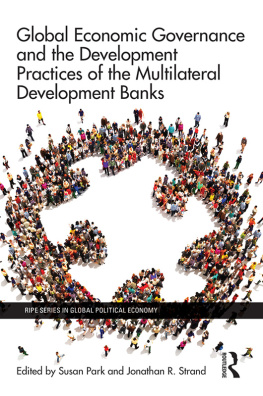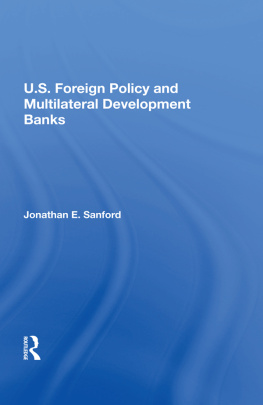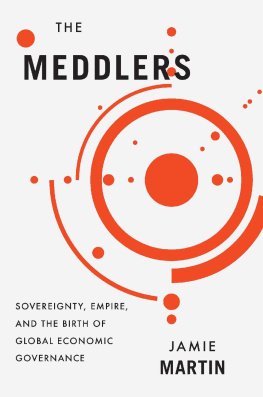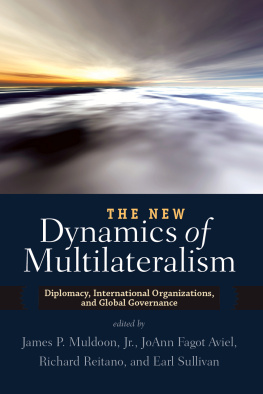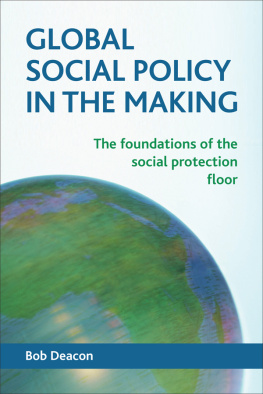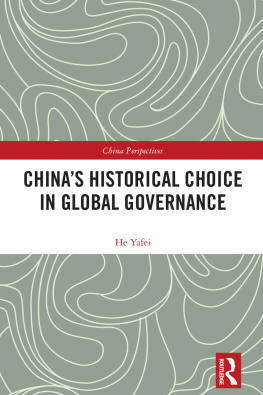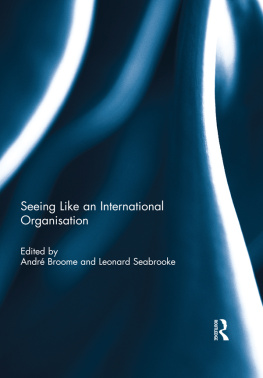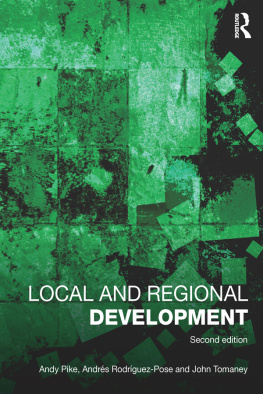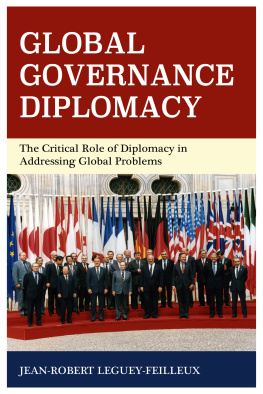Global Economic Governance and the Development Practices of the Multilateral Development Banks
As pillars of the post-1945 international economic system, the Regional and Sub-Regional Development Banks (RDBs) have long been considered mini-World Banks, reiterating the policy approach of the largest official multilateral development lender in the world. The main objective of the collection is to identify what role the RDBs play in global economic governance and why.
This edited collection draws together cutting-edge original research on these understudied institutions. In the burgeoning sub-field of global economic governance as well as the broader study of international organisations (IOs), too often the focus remains on the World Bank and the International Monetary Fund (IMF). Second-order IOs, such as the RDBs, receive much less attention despite their longevity and regional importance. This volume corrects this oversight by bringing together research on the RDBs that interrogates the role and impact of these organisations in global economic governance.
The book investigates: the African Development Bank (AfDB); the Asian Development Bank (ADB); the Inter-American Development Bank (IDB); the European Bank for Reconstruction and Development (EBRD); and select sub-regional development banks in comparison to the World Bank. It will be of great interest to students and scholars of IPE, IR and Development Studies.
Susan Park is an Associate Professor in International Relations at the University of Sydney. Susan has been a Visiting Scholar at George Washington University, the London School of Economics, the American University and the Centennial Center for Political Science and Public Affairs in Washington, DC.
Jonathan R. Strand is an Associate Professor of Political Science at the University of Nevada, Las Vegas. Previously he taught at Niagara University, New York and held a research position at the United Nations Universitys Institute of Advanced Studies, Japan.
RIPE Series in Global Political Economy
Series Editors: Jacqueline Best (University of Ottawa, Canada), Ian Bruff (Manchester University, UK), Paul Langley (Durham University, UK) and Anna Leander (Copenhagen Business School, Denmark)
Formerly edited by Leonard Seabrooke (Copenhagen Business School, Denmark), Randall Germain (Carleton University, Canada), Rorden Wilkinson (University of Manchester, UK), Otto Holman (University of Amsterdam), Marianne Marchand (Universidad de las Amricas-Puebla), Henk Overbeek (Free University, Amsterdam) and Marianne Franklin (Goldsmiths, University of London, UK)
The RIPE series editorial board are:
Mathias Albert (Bielefeld University, Germany), Mark Beeson (University of Birmingham, UK), A. Claire Cutler (University of Victoria, Canada), Marianne Franklin (Goldsmiths, University of London, UK), Randall Germain (Carleton University, Canada) Stephen Gill (York University, Canada), Jeffrey Hart (Indiana University, USA), Eric Helleiner (Trent University, Canada), Otto Holman (University of Amsterdam, the Netherlands), Marianne H. Marchand (Universidad de las Amricas-Puebla, Mexico), Craig N. Murphy (Wellesley College, USA), Robert OBrien (McMaster University, Canada), Henk Overbeek (Vrije Universiteit, the Netherlands), Anthony Payne (University of Sheffield, UK), V. Spike Peterson (University of Arizona, USA) and Rorden Wilkinson (University of Manchester, UK).
This series, published in association with the Review of International Political Economy, provides a forum for current and interdisciplinary debates in international political economy. The series aims to advance understanding of the key issues in the global political economy, and to present innovative analyses of emerging topics. The titles in the series focus on three broad themes:
the structures, processes and actors of contemporary global transformations
the changing forms taken by governance, at scales from the local and everyday to the global and systemic
the inseparability of economic from political, social and cultural questions, including resistance, dissent and social movements.
The RIPE Series in Global Political Economy aims to address the needs of students and teachers. Titles include:
Transnational Classes and International Relations
Kees van der Pijl
Globalization and Governance
Edited by Aseem Prakash and Jeffrey A. Hart
Nation-States and Money
The past, present and future of national currencies
Edited by Emily Gilbert and Eric Helleiner
Gender and Global Restructuring:
Sightings, sites and resistances
Edited by Marianne H. Marchand and Anne Sisson Runyan
The Global Political Economy of Intellectual Property Rights
The new enclosures?
Christopher May
Global Political Economy
Contemporary theories
Edited by Ronen Palan
Ideologies of Globalization
Contending visions of a new world order
Mark Rupert
The Clash within Civilisations
Coming to terms with cultural conflicts
Dieter Senghaas
Capitalist Restructuring, Globalisation and the Third Way
Lessons from the Swedish Model
J. Magnus Ryner
Transnational Capitalism and the Struggle over European Integration
Bastiaan van Apeldoorn
World Financial Orders
An historical international political economy
Paul Langley
Global Unions?
Theory and strategies of organized labour in the global political economy
Edited by Jeffrey Harrod and Robert OBrien
Political Economy of a Plural World
Critical reflections on power, morals and civilizations
Robert Cox with Michael Schechter
The Changing Politics of Finance in Korea and Thailand
From deregulation to debacle
Xiaoke Zhang
Anti-Immigrantism in Western Democracies
Statecraft, desire and the politics of exclusion
Roxanne Lynn Doty
The Political Economy of European Employment
European integration and the transnationalization of the (un)employment question
Edited by Henk OverbeekA Critical Rewriting of Global Political Economy
Integrating reproductive, productive and virtual economies
V. Spike Peterson
International Trade and Developing Countries
Bargaining coalitions in the GATT & WTO
Amrita Narlikar
Rethinking Global Political Economy
Emerging issues, unfolding odysseys
Edited by Mary Ann Ttreault, Robert A. Denemark, Kenneth P. Thomas and Kurt Burch
Global Institutions and Development
Framing the world?
Edited by Morten Bs and Desmond McNeill
Contesting Globalization
Space and place in the world economy
Andr C. Drainville
The Southern Cone Model
The political economy of regional capitalist development in Latin America
Nicola Phillips
The Idea of Global Civil Society
Politics and ethics of a globalizing era
Edited by Randall D. Germain and Michael Kenny
Global Institutions, Marginalization, and Development
Craig N. Murphy
Governing Financial Globalization
International political economy and multi-level governance
Edited by Andrew Baker, David Hudson and Richard Woodward
Critical theories, international relations and
the anti-globalisation movement
The Politics of Global Resistance
Edited by Catherine Eschle and Bice Maiguashca
Resisting Intellectual Property

